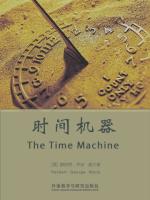《时间机器》读后感
杨松然
"Time
Machine," penned by H.G. Wells, is a classic work ofscience
fiction that transcends the boundaries of a mere adventure storyabout
time travel. It serves as a profound philosophical exploration
ofsocial class divide, human evolution, and the destiny of our
species.Wells, with his extraordinary imagination, constructs a future
worldthat is both fantastical and unsettling, guiding us through the
eyes ofthe Time Traveler to London in the year 802,701 AD. There, we
bearwitness to the bifurcation of humanity into the Eloi and the
Morlocks –one race living an idyllic life on the surface, while the
other lurksbeneath ground, degenerated and hidden from sunlight,
reflecting theauthor's anxieties about societal stratification and the
duality ofhuman nature. The novel's depiction of the fourth dimension
of time,even by modern scientific standards, exhibits remarkable
foresight andhas inspired countless subsequent works in the realm of
science fictionto delve into the concept of time travel. Wells' prose
is not merelyspeculative fantasy about future technologies; it is a
profoundmeditation on humanity, social structures, and the ultimate
fate of ourkind, elevating this piece to a monument in the annals of
sciencefiction literature that transcends its era. "Time
Machine" isnot just a thrilling journey but also a
thought-provoking expeditionthat compels readers to confront the
issues and challenges of our realworld amidst the revelry of
scientific imagination. It is a timelessclassic that every generation
of readers should revisit and ponder,prompting reflections on how to
avert the bleak future it portrays frombecoming our reality.




 京公网安备 11010802032529号
京公网安备 11010802032529号